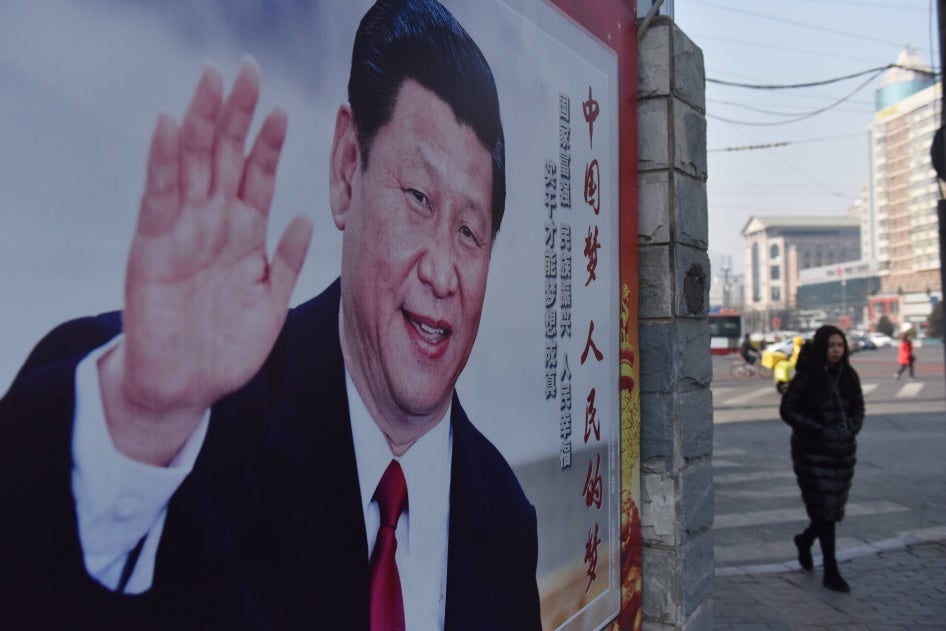“Every woman my age in China has a story to tell,” our friend Eunice Ng says. When she was 9, Eunice’s mother went away for what her family said was “medical treatment.” She didn’t think much of it at the time – nothing was unusual, except that the top floor of their home was always locked.
Months later, her mother returned. Later still, a baby boy came to live with them. Eunice’s family told her the boy was a distant relative whose parents were migrant workers too busy to look after him.
When Eunice became a teenager, her family finally came clean – the boy was, in fact, her brother. To evade the Chinese government’s brutal one-child family planning policy and the officials who enforced it, Eunice’s mother had hidden on the top floor of their home for six months while pregnant.
Eunice’s story is not unique. As far as the Chinese government is concerned, women’s bodies do not belong to them. From the 1950s through to the early 1970s, Mao Zedong mostly encouraged women to have babies to make the country strong. But as China’s population exploded, Deng Xiaoping abruptly reversed course in the late 1970s. For nearly four decades between the 1980s and until 2015, the state imposed its abusive one-child policy on families. Family planning officials forced married women to insert intrauterine devices, abort their “out-of-quota” babies, and imposed crippling fines on families who violated the policy.
Now, as China’s birth rate has dropped precipitously, the government has reversed again, encouraging women to have babies, and exhorting them to return to their domestic roles.
At a recent All-China Women’s Federation meeting, President Xi Jinping told the cadres there to “guide women to play their roles in carrying forward the traditional virtues of the Chinese nation” and “in establishing good family traditions.” They should “actively cultivate a new culture of marriage and child-bearing” among women, so they can “respond to the aging of the population.”
But if Mr. Xi hopes to usher women back toward domesticity, many in Eunice’s generation – women now in their 20s, 30s and 40s – are refusing to share his vision. This generation grew up with the Communist Party’s propaganda that women “hold up half the sky.” More important, they are now better educated. Many women, especially those who grew up in coastal cities, have come to expect equal opportunities to participate in the country’s economic, social and cultural life.
In the early 2010s, a growing cohort of young college-educated women across the country organized direct action, media campaigns, and lawsuits to raise awareness and press for change against domestic violence and sexual harassment. Unfortunately, this nascent women’s rights movement coincided with Mr. Xi’s new leadership, which quickly quashed its rise by arresting five young feminist leaders. It was a turning point: The 2015 arrests of the “Feminist Five” politicized women’s rights, and opened a floodgate of gender animosity, in which ordinary Chinese people – mostly men – followed the government’s cue to smear and attack feminists online.
But this wave of state-enabled hostility also caused the movement to decentralize. In 2018, #MeToo provided a high-profile focal point for Chinese women who had long complained about sexual harassment. When a young academic, Luo Xixi, stood up and accused a professor of sexual harassment in January, 2018, the movement erupted. Several cases then riveted the public’s attention: 29-year-old Zhou Xiaoxuan accused and later took to court a state TV presenter over unwanted sexual contact; the tennis star Peng Shuai accused a top Communist Party official of sexual assault; and a group of women recently accused a prominent literary figure, Shi Hang, of inappropriate behaviour.
The strength and determination of this new generation of women were apparent throughout 2022, as they exposed and held accountable a man for trafficking, raping and shackling a woman with psychosocial disabilities for years in a rural village. They also pushed the authorities to arrest a group of men who publicly assaulted four women for refusing their sexual advances in Tangshan, Hebei province.
Many of those who participated in China’s nationwide white-paper protests in late 2022 against China’s draconian zero-COVID policy and deepening authoritarianism were also women. Their counterparts organizing and participating in similar protests abroad also were mainly young women.
Mr. Xi has taken note of these cases, many of which have generated wide international attention. In his speech, he told cadres to “prevent and resolve risks in the women’s field.” And a few of the recently influential activists in China – such as journalist Huang Xueqin – have been detained or forcibly disappeared.
It would be too simplistic to understand this as a fight between the paternalistic Chinese government on the one hand, and rabble-rousing women on the other. Outside of China’s coastal cities, in smaller towns and villages like Eunice’s, there is a second China where women with fewer economic opportunities have long concluded that they have little choice but to conform to their parents’ and society’s expectations.
The issue of a “woman’s place” has become heated in China in recent years. Online, some netizens have disparaged women’s rights activists for being militant. Meanwhile, some feminists have disparaged women who acquiesce to traditional norms as “marriage donkeys.” Censorship has made these much-needed debates difficult – the Chinese social-media company WeChat has repeatedly closed the accounts of women’s rights activists. Many young women have responded by scaling China’s Great Firewall, using virtual private networks and forging space for themselves on sites such as Reddit, where they are freer to debate gender roles and expectations.
For this generation of women and men, the one-child policy fundamentally altered the very concept of family. Eunice’s brother had grown up calling their aunt “Mom” to avoid being found out by family planning officials. To this generation of young women and men in China, who grew up without understanding what a family is, or should have been – “It all got so confusing and twisted,” Eunice says – the concepts of “family,” “mother,” “love,” and “sense of security” do not naturally go together.
Eunice has left China and is working toward becoming a baker. She is also newly married to a man whose kindness is changing her, she says – it’s the reason why she’s contemplating having children.
Mr. Xi’s government may want more women to give birth, care for the elderly and “establish good family traditions.” But instead of forcing women back into the home, which many will surely resist, a better way is to help this generation heal.
The Chinese government should allow women to freely discuss what it is to be a woman, to decide whether to form a family, and support them with a society based on kindness and equality. This means, at the very least, supporting women’s equal participation in society, providing child care that parents can rely on, and recognizing that the role of caregiving is an important part of the economy that needs to be valued. The results may well surprise everybody.
--
This article was co-authored with Tingting Li. Tingting Li, also known as Li Maizi, is a Chinese queer feminist activist and one of the “Feminist Five.”










